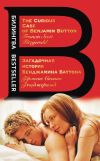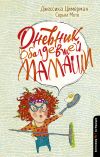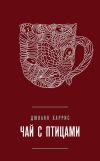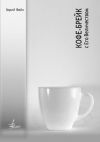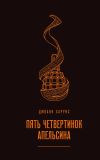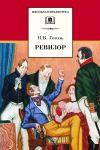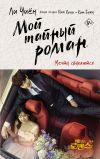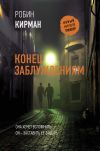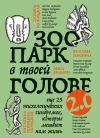Текст книги "Five Quarters of the Orange / Пять четвертинок апельсина"

Автор книги: Джоанн Харрис
Жанр: Современная зарубежная литература, Современная проза
Возрастные ограничения: +16
сообщить о неприемлемом содержимом
Текущая страница: 15 (всего у книги 48 страниц) [доступный отрывок для чтения: 16 страниц]
The Café de la Mauvaise Réputation, “ La Rép ” to its regulars-wooden floor, polished bar with an old piano standing beside it (of course, nowadays half the keys are missing and there’s a planter of geraniums where the works used to be), a row of bottles (no optics in those days) and glasses hanging on hooks under the bar and around. The sign has been replaced by a blue neon thing and there are machines and a jukebox, but in those days there was nothing but the piano and a few tables that you could move against the walls if anyone happened to want to dance.
Raphaël could play when he wanted to, and sometimes someone-one of the women, Colette Gaudin or Agnès Petit-might sing. No one had a record player in those days, and the radio was forbidden, but the café was said to be a lively place in the evenings, and we sometimes heard music from there even across the fields if the wind was blowing in the right direction. That was where Julien Lecoz lost his south pasture at cards-rumor had it he’d betted his wife as well, but no one would take him up on the offer-and it was the second home of the local drunks who would sit at the terrasse smoking or playing pétanque by the steps. Paul’s father was there often, much to our mother’s disapproval, and though I never saw him drunk he never seemed to be quite sober either, smiling vaguely at passersby and showing his big square yellow dentures. It was a place where we never went. We were territorial creatures and regarded certain places as peculiarly our own, though others belonged to the village, the adults, places of mystery or indifference, the church, the post office where Michelle Hourias sorted the mail and gossiped over the counter, the little school where we had spent our earliest years, but which now stayed boarded up.
La Mauvaise Réputation.
We stayed away partly because our mother told us. She had a peculiar hatred of drunkenness, of dirt, of loose living, and the place epitomized all of these to her. Though she was not a churchgoer she retained an almost puritanical view of life, believing in hard work, a clean house, polite, well-mannered children. When she had to walk past the place she would do so with her head lowered protectively, a scarf crossed at her thin chest, mouth pursed against the sounds of music and laughter from within. Strange that such a woman-such a self-controlled, order-loving woman-should have fallen victim to drug addiction.
Like the clock, she writes in her album, I am divided. When the moon rises I am not myself. She went to her room so that we would not see her change.
It was a shock to me to realize, after reading those secret passages in the album, that she went regularly to La Mauvaise Réputation. Once a week or more she went there, after dark and in secret, hating every moment and hating herself for her need. She did not drink-no. Why should she, when there were dozens of bottles of cider or prunelle or even calva from her native Brittany in the cellar? Drunkenness, she told us once in a rare moment of confidence, is a sin against the fruit, the tree, the wine itself. It is an outrage, an abuse, just as rape is an abuse of the act of love. She flushed then, turning away gruffly-Reine-Claude, the oil and some basil, quickly! – but the thought stayed with me. Wine, distilled and nurtured from bud into fruit and then through all the processes that make it what it is, deserves better than to be guzzled by some sot with a headful of nonsense. It deserves reverence. Joy. Gentleness.
Oh, she understood wine, my mother. She understood the sweetening process, the fermentation, the seething and mellowing of life in the bottle, the darkening, the slow transformations, the birth of a new vintage in a bouquet of aromas like a magician’s bunch of paper flowers. If only she had had time and patience enough for us. A child is not a fruit tree. She understood that too late. There is no recipe to take a child into sweet, safe adulthood. She should have known that.
Of course, drugs are still sold in La Mauvaise Réputation. Even I know that, and I’m not so old that I can’t recognize the sweet jazzy reek of pot over the haze of beer and frying. God knows I smelled it often enough across the road from the Snack-Wagon-I’ve got a nose, even if that idiot Ramondin hasn’t-and the air was yellow with it some nights when the bikers came. “Recreational drugs,” they call them nowadays, and give them fancy names. But there wasn’t really any such thing in Les Laveuses in those days. The jazz clubs of St Germain-des-Prés were still a decade away, and besides, they never really reached us, not even in the sixties. No, my mother went to La Mauvaise Réputation out of need, simple need, because that was where most of the trading took place. Black market trading, cloth and shoes and less innocuous things like knives, guns, ammunition… Everything had its place at La Rép, cigarettes and brandy and picture postcards of naked women, nylon stockings and lace underwear for Colette and Agnès, who wore their hair loose and reddened their cheekbones with old-fashioned rouge so that they looked like Dutch dolls, one high crimson spot on each cheek and a round bud on the lips, like Lillian Gish.
Round the back, the secret societies, the Communists, the malcontents, the would-bes and the heroes made plans. In the bar the talkers held court and passed little packages to one another or whispered in undertones and drank to future undertakings. In the woods a few wore soot on their faces and cycled to meetings in Angers, braving the curfew. Sometimes – very infrequently – you could hear shots from the other side of the river.
How Mother must have hated it.
But that was where she got the pills. She wrote it all in her album-pills for migraine, morphine from the hospital, three at a time first and then six, ten, twelve, twenty. Her suppliers varied. At first it was Philippe Hourias. Julien Lecoz knew someone, a voluntary worker. Agnès Petit had a cousin, a friend of a friend in Paris… Guilherm Ramondin, the one with the wooden leg, could be persuaded to exchange some of his own medication for wine or money. Small packages, a couple of tablets in a twist of paper, an ampoule and a syringe, a blister of pills. Anything with a morphine base. Of course there was no getting anything from the doctor. In any case, the nearest was in Angers, and all the supplies were needed to treat our soldiers. After her own supplies ran out she scrounged, sold, swapped. She kept the list in her album.
March 2, 1942. Guilherm Ramondin. 4 tablets morphine against 12 eggs.
March 16, 1942. Françoise Petit. 3 tablets morphine against bottle Calvados.
She sold her jewelry-the single row of pearls she is wearing in the wedding photo, her rings, the diamond-chip earrings she had from her mother-in Angers. She was ingenious. Almost as much as Tomas, in her way, though she was always fair in her dealings. With a little ingenuity, she managed.
Then the Germans came.
One or two at a time at first. Some in uniform, some out. The bar fell silent at their entrance, but they made up for that by their merriment, their laughter, the rounds they drank, standing up unsteady at closing time with a smile to Colette or Agnès and a careless handful of coins thrown onto the counter. Sometimes they brought women. We never recognized them, the fur-collared girls from town, girls with nylon stockings and sheer dresses and hair rolled into movie-star confections bristling with hairpins and plucked-thin eyebrows and red-black gleaming lips with white teeth and drooping long-fingered hands over wineglasses. They only came at night. Only with the Germans on the backs of their motorcycles, squealing with shrill delight as they sped through the night, hair flying. Four women. Four Germans. Every now and again the women changed, but the Germans stayed the same.
She writes about them in her album, her first glimpse of them.
Filthy Boches and their whores. Looked at me in my smock, smiled behind their hands. I’d like to kill them. Looked at them watching me and I felt old. Ugly. Only one has kind eyes. The girl beside him bored him, I could tell. Cheap stupid girl, stocking seams drawn on in grease pencil. I could almost feel sorry for her. But he smiled at me. Had to bite my tongue to stop myself from smiling back.
Of course, I have no proof that it was Tomas she wrote about. It might have been anyone in those few scrawled lines. There is no description, nothing to suggest it might have been him, and yet somehow, I am certain that it was. Only Tomas could have made her feel that way. Only Tomas could have made me feel that way.
It’s all in the album. You can read it if you want to, if you know where to look. There is no sequence to events. Other than with the details of her secret transactions there are scarcely any dates. But she was meticulous in her fashion. She described La Rép as it was, so clearly, that reading it years later I felt a thickness in my throat. The noise, the music, the smoke, beer, voices raised in laughter or drunken ribaldry. No wonder we were not allowed near the place. She was too ashamed of her own involvement, too afraid of what we might learn from one of the regulars.
On the night we crept over there, we were to be disappointed. We had imagined a secret den of adult vices. I’d expected naked dancers, women with rubies in their navels and hair down to their waists. Cassis, still feigning indifference, had seen Resistance fighters in his mind’s eye, black-clad guerillas with hard eyes beneath their night camouflage. Reinette imagined herself, rouged and pomaded, with a fur stole around her shoulders, sipping martinis. But that night, looking through the murky window there seemed to be nothing of interest. Only a few old men at tables, a backgammon board, a pack of cards, the old piano and Agnès with her parachute-silk blouse open to the third button leaning against it and singing… It was still early. Tomas had not yet arrived.
May 9. A German soldier (Bavarian). 12 high-dosage morphine tablets against one chicken, sack of sugar and a side of bacon.
May 25. German soldier (fat neck). 16 high-dosage morphine tablets against 1 bottle calva, sack of flour, packet coffee, 6 jars of preserves.
Then a last entry, the date deliberately vague:
September. T. L. Bottle 30 high-dosage morphine tablets.
For the first time she fails to write her own contribution to the deal. Perhaps it is merely carelessness-the writing is barely legible, scrawled in a hurry. Perhaps this time she has paid more than she cares to write. What was the price? Thirty tablets must have seemed a prize of almost unimagined riches. No need to return to La Rép for a while. No more bartering with drunken louts like Julien Lecoz. I imagine she might have paid a great deal for the peace of mind those thirty tablets gave her. What exactly did she pay for that peace of mind? Information? Something else?
7We waited in what later became the parking garage. In those days it was no more than a dumping area for rubbish where the bins were kept and where deliveries-barrels of beer or occasionally merchandise of a more illicit nature-were made. A wall ran halfway along the back of the building, then disappeared in a tangle of elders and blackberry bushes. The back door was open-even in October it was stifling hot-and a bright yellow light fanned across the ground from the taproom. We sat on the wall, ready to drop down onto the other side if anyone came too near, and waited.
8As I said, it hasn’t changed much. A few lights, some machines, more people, but still the same Mauvaise Réputation, the same people with different hairstyles, the same faces. Going in there today you might almost imagine yourself back there, with the old sots and the young men with their girls in tow and the smell of beer and perfume and cigarettes over everything.
I went there myself, you know, when the Snack-Wagon came, Paul and I hiding-just as Cassis, Reine and I hid the night of the dance-in the garage. Of course, there were cars in it then. It was cold too, and raining. The elders and the blackberry tangle have gone, and now there’s only tarmac and a new wall behind which lovers go, or drunks when they want to piss. We were looking out for Dessanges then, our Luc with his sharp handsome face, but waiting there in the dark with the new neon sign going blink-blink against the wet tarmac, I might have been nine again, and Tomas in the back room with a girl on each arm… Funny tricks time plays on you. There was a double row of motorbikes in the garage, gleaming wetly.
It was eleven o’clock. I felt suddenly stupid, leaning against the new concrete wall like a silly girl spying on the adults, the world’s oldest nine-year-old with Paul next to me and his old dog in tow on its inevitable leash of twine. Stupid and beaten, two old people watching a bar from the dark. For what? A burst of music from the jukebox, nothing I could identify. Even the instruments are alien nowadays, electronic things with no need for mouths or fingers to play them. A girl’s laugh, high and unpleasant. For a moment the door fanned open and we saw him clearly, a girl on each arm. He was wearing a leather jacket that might have cost two thousand francs or more in a Paris shop. The girls were silky and red-mouthed and very young in their thin-strapped dresses. I felt a sudden cold despair.
“Look at us.” I realized that my hair was wet, my fingers stiff as sticks. “James Bond and Mata Hari. Let’s go home.”
Paul looked at me in that reflective way he always has. Anyone else might not have seen the intelligence in his eyes, but I did. Silently he took my hand between his. His hands felt comfortingly warm, and I could feel the rows of calluses on his palms.
“Don’t give up,” he said.
I shrugged.
“We’re doing no good here,” I said. “Just making fools of ourselves. Face it, Paul, we’re never going to get the better of Dessanges, so we might as well get that into our thick stubborn heads right now. I mean-”
“No, you don’t.” His voice was slow and almost amused. “You never give up, Framboise. You never did.”
Patience. His patience, kind and stubborn enough to wait out a lifetime.
“That was then,” I told him without meeting his eyes.
“You haven’t changed so much, Framboise.”
Maybe that’s true. There’s something in me still, something hard and not necessarily good. I still feel it occasionally, a hard cold something like a stone inside a clenched fist. I always had it, even in the old days, something mean and dogged and just clever enough to hang on for as long as it took to win… As if Old Mother had somehow got inside me that day and, going for the heart, had instead been swallowed by that inner mouth of mine. A fossil fish inside a fist of stone-I saw a picture of one once in one of Ricot’s dinosaur books-eating itself in its stubborn spite.
“Perhaps I ought to change,” I said softly. “Perhaps I should.”
I think that for a while I really meant it too. I was tired, you understand. Tired beyond anything. Two months on and we’d tried, God knows, we’d tried everything. We watched Luc. We reasoned with him. We built elaborate fantasies-a bomb under his trailer, a hit man from Paris, a shot from a sniper’s rifle at the Lookout Post. Oh, yes, I could have killed him. My anger exhausted me, but my fear kept me awake throughout the night, so that my days were broken glass and my head ached all the time. It was more than simply the fear of exposure; after all, I was Mirabelle Dartigen’s daughter. I had her spirit. I cared about the restaurant, but even if the Dessanges put me out of business, even if no one in Les Laveuses spoke to me ever again, I knew I could fight it out. No, my true fear-kept secret from Paul, barely acknowledged even to myself-was something far darker and more complex. It lurked in the depths of my mind like Old Mother in her slimy bed, and I prayed no lure would ever tempt it out.
I received two letters; one from Yannick and one addressed to me in Laure’s writing. I read the first with growing unease. In it Yannick was plaintive and cajoling: he had been going through a bad time. Laure didn’t understand him, he said; she constantly used his financial dependency as a weapon against him. They had been trying for a child for three years without success; she blamed him for that too. She had mentioned divorce.
According to Yannick, the loan of my mother’s album would change all that. What Laure needed was something to occupy her mind, a new project. Her career needed a boost. Yannick knew I could not be so heartless as to refuse…
I burnt the second letter unopened. Perhaps it was the memory of Noisette’s flat, factual notes from Canada, but I found my nephew’s confidences pitiful and embarrassing. I did not want to know any more. Undaunted, Paul and I prepared for a final siege.
This was to be our last hope. I’m not sure what we expected-it was only sheer obstinacy that kept us going. Perhaps I still needed to win, just as I had that last summer at Les Laveuses. Perhaps it was my mother’s harsh, unreasonable spirit in me, refusing to be beaten. Give up now, I told myself, and her sacrifice would have been for nothing. I fought for both of us, and thought that even my mother might have been proud.
I had never imagined that Paul would prove such an invaluable support. Watching the café had been his idea, just as it was he who discovered the Dessanges phone number on the back of the Snack-Wagon. I had come to rely heavily on Paul in those months, and to trust his judgment. We often sat guard together, a blanket tucked over our feet as the nights drew colder, a pot of coffee and a couple of glasses of Cointreau between us. In small ways, he made himself indispensable. He peeled vegetables for the evening’s cooking. He brought in firewood and gutted fish. Even though visitors to Crêpe Framboise were rare-I stopped opening altogether midweek, and even on the weekend the presence of the Snack-Wagon discouraged all but the most determined customers-he would keep watch in the restaurant, wash dishes, mop floors. And nearly always in silence, the comfortable silence of long intimacy, the simple silence of friendship.
“Don’t change,” he said at last.
I’d turned to go, but he kept my hand in his and I couldn’t pull away. I could see raindrops gleaming on his beret and against his mustache. Behind us, I could hear music from the café.
“I think I might have got something,” said Paul.
“What?” My voice was rough with weariness. All I wanted to do was to lie down and sleep. “For God’s sake, what now?”
“It might be nothing.” Careful now, with a slowness that made me want to scream in frustration. “Wait here. Just want to… you know… check something.”
“What, here?” I almost shrieked. “Paul, you just wait a-”
But he was already gone, moving with a poacher’s speed and silence toward the taproom door. Another second, and he was gone.
“Paul!” I said furiously. “Paul! Don’t think I’m going to wait out here for you! Damn you, Paul!”
But I did. As the rain soaked into the collar of my good autumn coat, creeping slowly into my hair and dribbling cold fingerlings between my breasts, I had plenty of time to realize that no, I hadn’t really changed all that much, after all.
9Cassis, Reinette and I been waiting for over an hour when they arrived. Once we were outside La Rép, Cassis, shed all pretense at indifference and watched avidly through one of the smeared windowpanes pushing us back when we tried to take our turns. My interest was limited. Until Tomas arrived there could be nothing much to see, after all. But Reine was persistent.
“I want to see,” she wailed. “Cassis, you mean thing, I want to see!”
“There’s nothing there,” I told her impatiently. “Nothing but old men at tables and those two tarts with their mouths painted red.”
I’d only caught a glimpse at the time, but how I remember. Agnès at the piano and Colette with a tight green wrap-over cardigan revealing thrusting breasts like cannon shells. I still remember where everyone was, Martin and Jean-Marie Dupré playing cards with Philippe Hourias-fleecing him, as usual, by all appearances-Henri Lemaître sitting by the bar with an everlasting demi and an eye to the ladies, François Ramondin and Arthur Lecoz, Julien’s cousin, discussing something furtive in a corner with Julien Lanicen and Auguste Truriand and old Gustave Beauchamp on his own by the window, beret pulled down over his hairy ears and a stub of a pipe jammed between his lips. I remember them all. With a struggle I can see Philippe’s cloth cap lying on the bar next to him, I can smell the tobacco smoke-by then the precious tobacco was heavily laced with dandelion leaves, and stank like a green-stick fire-and the smell of chicory coffee. The scene has the stillness of a tableau, the golden glow of nostalgia overridden by the dark-red flare of burning. Oh, I remember. I only wish I didn’t.
When at last they came, we were stiff and bad-tempered from crouching against the wall and Reinette was almost in tears. Cassis had been watching through the doorway and we had settled under the smeary window. It was I who heard them first, the distant sound of motorbikes getting closer on the Angers road, then blatting down the dirt track with a muffled series of small explosions. Four bikes. I suppose we should have expected the women. If we’d known how to read Mother’s album we should certainly have anticipated their arrival, but we were profoundly innocent in spite of everything, and the reality shocked us a little. I suppose it was because as they entered the bar we could see that these were real women-tight twinsets, fake pearls, one carrying her pointed high-heeled shoes in one hand, the other fumbling in her handbag for a compact-not especially pretty, not even very young. I’d expected glamour. But these were only ordinary women like my mother, sharp-faced, hair held back with metal grips, backs arched to an impossible camber by those agonizing shoes. Three ordinary women.
Reinette was gaping.
“Look at her shoes!”
Her face, pressed against the smeared glass, was pink with delight and admiration. I realized that she and I were seeing different things, that my sister still saw movie-star glamour in the nylon stockings, the fur collars, crocodile handbags, fluffy ostrich feathers, diamond-cluster earrings, elaborate hairstyles. For the next minute she continued to murmur to herself in tones of ecstasy.
“Look at her hat! Ohhh! Her dress! Ohhh!”
Cassis and I both ignored her. My brother was studying the boxes that had been brought on the back of the fourth motorbike. I was watching Tomas.
He stood slightly aside from the rest, one elbow against the bar. I saw him say something to Raphaël, who began to draw glasses of beer. Heinemann, Schwartz and Hauer settled themselves at a free table near the window with the women, and I noticed old Gustave drew away to the other side of the room with a sudden expression of disgust, taking his glass with him. The other drinkers behaved much as if they were used to such visits, even nodding to the Germans as they crossed the room, Henri giving the eye to the three women even after they sat down. I felt a sudden, absurd stab of triumph that Tomas remained unescorted. He stayed at the bar for a while, talking with Raphaël, and I had chance to watch his expressions, his careless gestures, his cap pushed back at a jaunty angle and his uniform jacket left hanging open over his shirt. Raphaël said little, his face wooden and polite. Tomas seemed to sense his dislike, but to be more amused than angry. He lifted his glass in a slightly mocking way and drank Raphaël’s health. Agnès began to play the piano, a waltzy tune with a brittle plink-plink on one of the high notes where one of the keys had been damaged.
Cassis was getting bored.
“Nothing’s happening,” he said in a sullen voice. “Let’s go.”
But Reinette and I were fascinated, she by the lights, the jewelry, the glassware, the smoke from an elegant lacquer cigarette holder held between painted nails, and I… Tomas, of course. It didn’t matter whether anything was happening. I would have derived equal pleasure from watching him alone and sleeping. There was a charm in watching him in secret like this. I could put my hands on the blurry glass and cup his face between them. I could put my lips to the window and imagine his skin against mine. The other three had been drinking more heavily, fat Schwartz with a woman on his knee, one hand riding her skirt higher and higher up her legs so that occasionally I was able to catch a glimpse of the top of her brown stocking and the pinkish garter that held it. I noticed too that Henri had moved closer to the group, ogling the women who screeched like peacocks at every pleasantry. The cardplayers had stopped their game to stare, and Jean-Marie, who seemed to have won the most, moved casually across the bar toward Tomas. Jean-Marie pushed money across the scuffed surface, and Raphaël brought more drinks. Tomas looked once, briefly, behind him at the group of drinkers and smiled. It was a short conversation, and it must have passed unnoticed by anyone who was not deliberately observing Tomas. I imagine that only I saw the transaction, a smile, a mutter, a paper pushed across the bar and quickly hidden in the pocket of Tomas’s coat. It didn’t surprise me. Tomas traded with everyone. He had that gift. We watched and waited for another hour. I think Cassis dozed. Tomas played the piano for a while as Agnès sang, but I was pleased to see that he showed little interest in the women who fawned over and caressed him. I felt proud of him for that. Tomas had better taste.
Everyone had drunk rather a lot at this stage. Raphaël produced a bottle of fine and they drank it neat in coffee cups but without the coffee. A card game started between Hauer and the Dupré brothers, with Philippe and Colette watching and drinks as stakes. I could hear their laughter through the glass as Hauer lost again, though there was no ill feeling, as the drinks were already paid for. One of the town women fell over onto her ankle and sat on the floor, giggling, hair falling over her face. Only Gustave Beauchamp remained aloof, refusing an offer of fine from Philippe and keeping as far from the Germans as possible. He caught Hauer’s eye once and said something under his breath, but as Hauer didn’t catch it, the German just looked at him coolly for a moment before returning to the game. It happened again though, a few minutes later, and this time Hauer, the only one of the group apart from Tomas who could really understand French, stood up, one hand going to the belt where he kept his pistol. The old man glowered at him, his pipe jutting out between his yellow teeth like the barrel of an old tank.
For a moment the tension between them was paralyzing. I saw Raphaël make a movement toward Tomas, who was watching the scene with unruffled amusement. A silent exchange passed between them. For a second or two I thought he might let it go on, just to see what might happen. The old man and the German faced each other, Hauer fully two heads taller than Gustave with his blue eyes bloodshot and the veins in his forehead like bloodworms against his brown skin. Tomas looked at Raphaël and smiled. What do you think? said the smile. Seems a pity to step in just when things are getting exciting. What do you think? Then he stepped forward, almost casually, to his friend, while Raphaël maneuvered the old man out of harm’s way. I don’t know what he said, but I think Tomas saved old Gustave’s life then, one arm round Hauer’s shoulder and the other gesturing vaguely in the direction of the boxes they had brought with them on the back of the fourth motorcycle, the black boxes that had so intrigued Cassis and which now stood against the piano waiting to be opened.
Hauer glared at Tomas for a moment. I could see his eyes narrowed to cuts in his thick cheeks, like slices in a piece of bacon rind. Then Tomas said something else and he relaxed, laughing with a troll’s roar above the sudden renewal of sound in the taproom, and the moment was over. Gustave shuffled off into a corner to finish his drink, and everyone went over to the piano where the boxes were waiting.
For a while I could see nothing but bodies. Then I heard a sound, a musical note much clearer and sweeter than that of the piano, and when Hauer turned toward the window he was holding a trumpet. Schwartz had a drum. Heinemann an instrument I did not recognize. The women moved aside to allow Agnès to reach the piano, then Tomas moved back into my field of vision with his saxophone slung over one shoulder like an exotic weapon. For a second I thought it was a weapon. Beside me Reinette took in a long wavery breath of awe. Cassis, wide awake now and his boredom forgotten, leaned forward, almost pushing me out of the way. It was he who identified the instruments for us. We had no record player at home, but Cassis was old enough to remember the music we used to listen to on the radio, before such things were forbidden, and he’d seen pictures of Glenn Miller’s band in the magazines he loved so much.
“That’s a clarinet!” He sounded very young, suddenly very like his sister in her awe over the town women’s shoes. “And Tomas has got a saxophone-oh, where did they get them? They must have requisitioned them-trust Tomas to find… Oh, I hope they play them, I hope they…”
I don’t know how good they were. I had no point of comparison at all, and we were so flushed with the excitement and the wonder of it that anything would have charmed us. I know it seems ridiculous now, but in those days we heard music so seldom-the piano at La Mauvaise Réputation, the church organ for those who went to church, Denis Gaudin’s violin on July 14 or Mardi Gras, when we danced in the streets… Not so much of that after the war started, of course, but we still did for a while. But now the sounds-exotic, unfamiliar sounds as unlike La Mauvaise Réputation ’s old piano as opera from barking-arose from the taproom, and we drew closer to the window so as not to miss a note. At first the instruments did little but make odd wailing sounds-I imagine they were tuning up, but we didn’t know that-then they began to play some bright sharp-sounding tune that we did not recognize, though I think it might have been some kind of jazz. A light beat from the drum, a throaty burble from the clarinet, but from Tomas’s saxophone a string of bright notes like Christmas lights, sweetly wailing, harshly whispering, rising-falling above the half-discordant whole like a human voice magically enhanced and containing the entire human range of softness, brashness, coaxing and grief…
Правообладателям!
Данное произведение размещено по согласованию с ООО "ЛитРес" (20% исходного текста). Если размещение книги нарушает чьи-либо права, то сообщите об этом.Читателям!
Оплатили, но не знаете что делать дальше?
